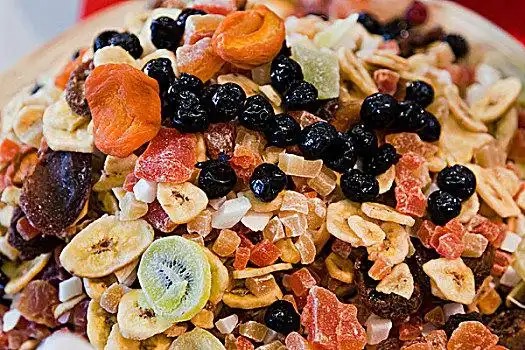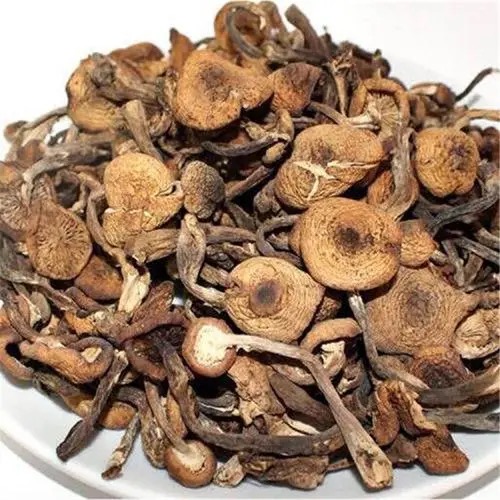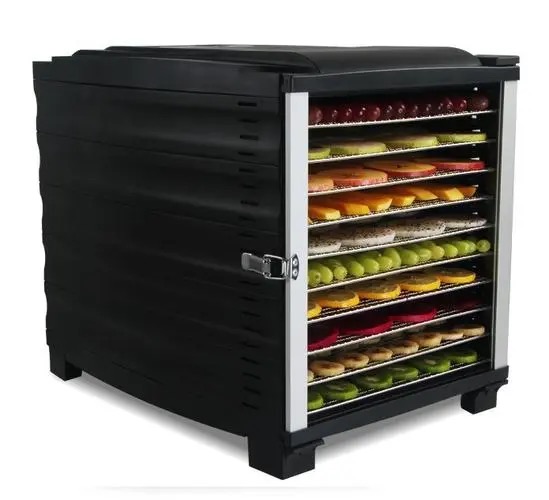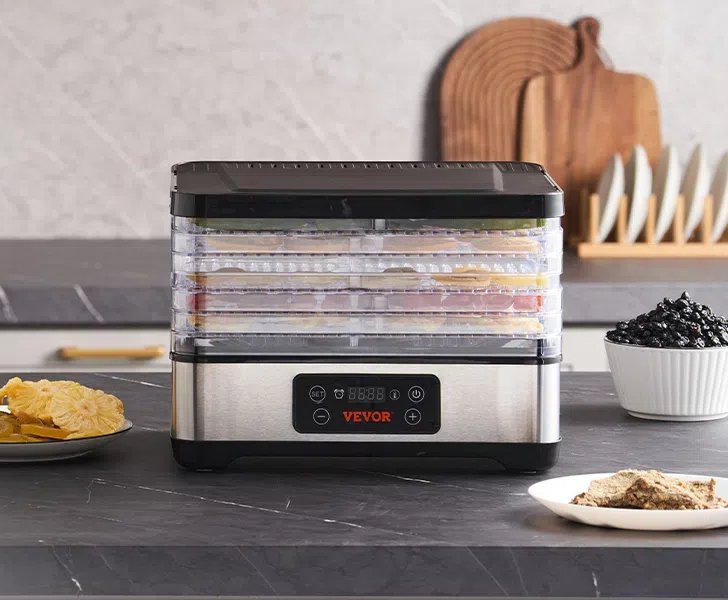
Content Menu
● Understanding Heat Pump Dryers
● Benefits of Heat Pump Dryers for Food Processing
● Key Considerations Before Buying a Heat Pump Dryer
>> Capacity and Size
>> Drying Temperature Range
>> Energy Efficiency Ratings
>> Control Systems
>> Material and Build Quality
>> Maintenance Requirements
>> Cost and Budget
>> Manufacturer Reputation and Support
>> Warranty and Service Agreements
>> Compliance with Regulations
● Additional Features to Consider
>> Automation and Smart Technology
>> Noise Levels
>> Energy Source
>> Safety Features
>> User-Friendly Design
● Conclusion
● Frequently Asked Questions
>> 1. What types of food can be dried using a heat pump dryer?
>> 2. How does a heat pump dryer differ from a conventional dryer?
>> 3. What is the average drying time for food in a heat pump dryer?
>> 4. Are heat pump dryers suitable for small businesses?
>> 5. What maintenance is required for a heat pump dryer?
When it comes to food preservation, drying is one of the oldest and most effective methods. In recent years, heat pump dryers have gained popularity in the food processing industry due to their energy efficiency and ability to maintain the quality of dried products. If you are considering investing in a heat pump dryer for your food processing needs, there are several factors to consider. This article will guide you through the essential aspects of selecting the right heat pump dryer for your business.

Understanding Heat Pump Dryers
Heat pump dryers operate on a principle similar to that of a refrigerator, using a refrigeration cycle to remove moisture from food products. Unlike traditional dryers that expel hot air, heat pump dryers recycle the air within the system, making them more energy-efficient. This technology allows for lower drying temperatures, which helps preserve the nutritional value, flavor, and color of the food.
Benefits of Heat Pump Dryers for Food Processing
1. Energy Efficiency: Heat pump dryers consume significantly less energy compared to conventional drying methods. This is particularly beneficial for businesses looking to reduce operational costs.
2. Quality Preservation: The lower drying temperatures help retain the essential nutrients and flavors of the food, resulting in higher quality dried products.
3. Versatility: Heat pump dryers can be used for a wide range of food products, including fruits, vegetables, herbs, and meats. This versatility makes them an excellent choice for various food processing applications.
4. Environmentally Friendly: By using less energy and reducing waste, heat pump dryers are a more sustainable option for food processing.
5. Compact Design: Many heat pump dryers are designed to be space-efficient, making them suitable for facilities with limited space.
Key Considerations Before Buying a Heat Pump Dryer
Capacity and Size
When selecting a heat pump dryer, consider the capacity that best suits your production needs. The size of the dryer will depend on the volume of food you plan to process. Larger dryers can handle more product at once, which can be beneficial for high-volume operations. However, if your production is smaller, a compact model may be more appropriate.
Drying Temperature Range
Different food products require different drying temperatures. Ensure that the heat pump dryer you choose can accommodate the temperature range needed for the specific foods you will be drying. A dryer with adjustable temperature settings will provide greater flexibility.
Energy Efficiency Ratings
Look for models with high energy efficiency ratings. This will not only help reduce your energy costs but also contribute to a more sustainable operation. Many manufacturers provide energy consumption data, which can help you make an informed decision.

Control Systems
Modern heat pump dryers come equipped with advanced control systems that allow for precise monitoring and adjustment of drying parameters. Look for features such as digital displays, programmable settings, and remote monitoring capabilities. These features can enhance the efficiency and ease of use of the dryer.
Material and Build Quality
The materials used in the construction of the heat pump dryer are crucial for durability and hygiene. Stainless steel is often preferred for food processing equipment due to its resistance to corrosion and ease of cleaning. Ensure that the dryer meets food safety standards and regulations.
Maintenance Requirements
Consider the maintenance needs of the heat pump dryer. Some models may require more frequent servicing than others. Look for dryers that are designed for easy maintenance, with accessible components and clear instructions.
Cost and Budget
Heat pump dryers can vary significantly in price. Establish a budget before you start shopping and consider the long-term savings associated with energy-efficient models. While a higher initial investment may be required for a quality heat pump dryer, the savings on energy bills can offset this cost over time.
Manufacturer Reputation and Support
Research the manufacturer’s reputation in the industry. Look for reviews and testimonials from other food processing businesses. A reputable manufacturer will provide reliable customer support and service, which is essential for maintaining your equipment.
Warranty and Service Agreements
Check the warranty offered by the manufacturer. A longer warranty period can provide peace of mind and protect your investment. Additionally, inquire about service agreements that may be available for ongoing maintenance and support.
Compliance with Regulations
Ensure that the heat pump dryer complies with local and international food safety regulations. This is particularly important if you plan to export your dried products. Compliance will help you avoid potential legal issues and ensure the safety of your products.
Additional Features to Consider
Automation and Smart Technology
Many modern heat pump dryers come equipped with smart technology that allows for automation of the drying process. This can include features such as automatic moisture detection, which adjusts drying times based on the moisture content of the food. Such technology not only improves efficiency but also ensures consistent quality in the final product.
Noise Levels
Consider the noise levels of the heat pump dryer, especially if it will be located near work areas or residential spaces. Some models are designed to operate quietly, which can be a significant advantage in maintaining a comfortable working environment.
Energy Source
Heat pump dryers typically run on electricity, but it’s essential to consider the energy source available at your facility. Ensure that your electrical system can support the dryer’s requirements, and consider the cost of electricity in your area when evaluating the overall operating costs.
Safety Features
Safety should always be a priority in food processing. Look for heat pump dryers that come with built-in safety features, such as overheat protection, automatic shut-off, and child safety locks. These features can help prevent accidents and ensure safe operation.
User-Friendly Design
A user-friendly design can significantly enhance the efficiency of your operations. Look for dryers with intuitive controls, clear displays, and easy access to the drying chamber for loading and unloading products. A well-designed machine can save time and reduce the risk of errors during operation.
Conclusion
Investing in a heat pump dryer can significantly enhance your food processing capabilities. By considering the factors outlined in this article, you can make an informed decision that aligns with your business needs. Remember to evaluate the capacity, energy efficiency, control systems, and manufacturer reputation before making a purchase. With the right heat pump dryer, you can improve the quality of your dried products while reducing energy costs and environmental impact.

Frequently Asked Questions
1. What types of food can be dried using a heat pump dryer?
Heat pump dryers can be used for a variety of foods, including fruits, vegetables, herbs, and meats.
2. How does a heat pump dryer differ from a conventional dryer?
Heat pump dryers recycle air and operate at lower temperatures, making them more energy-efficient and better for preserving food quality.
3. What is the average drying time for food in a heat pump dryer?
Drying times can vary based on the type of food and its moisture content, but generally, heat pump dryers take longer than conventional dryers due to lower temperatures.
4. Are heat pump dryers suitable for small businesses?
Yes, heat pump dryers come in various sizes, making them suitable for both small and large businesses.
5. What maintenance is required for a heat pump dryer?
Regular cleaning of filters and checking for any blockages are essential maintenance tasks. Consult the manufacturer’s guidelines for specific maintenance recommendations.












